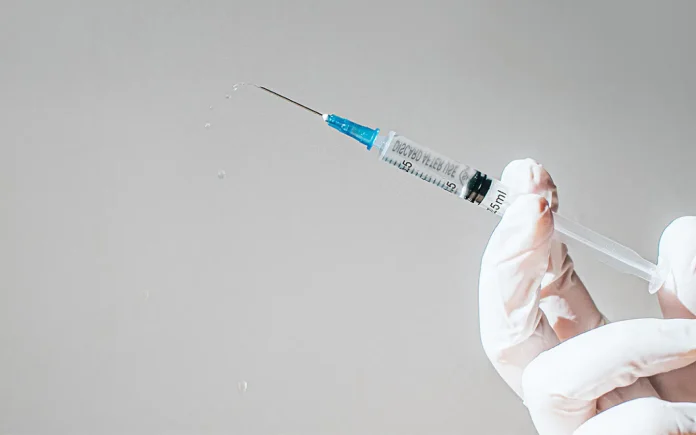Hobnob News
In a groundbreaking development that could redefine cancer treatment, Russia’s Ministry of Health has announced the creation of a personalized mRNA-based cancer vaccine. The innovative therapy, which will be offered free of charge to patients starting early 2025, marks a monumental advancement in the fight against cancer.
Unlike preventive vaccines, this cutting-edge treatment is designed to combat existing tumors by harnessing the power of personalized medicine. The vaccine uses genetic material extracted from a patient’s tumor to create a bespoke formulation tailored to their specific cancer. This approach ensures a highly targeted immune response, significantly increasing the likelihood of treatment success.
How the Vaccine Works
The mRNA vaccine trains the immune system to identify and attack cancer cells. By introducing tumor-specific antigens—unique proteins found on the surface of cancer cells—the vaccine stimulates the immune system to produce antibodies capable of effectively targeting and destroying malignant cells.
“This development represents a major leap forward in oncology,” said Andrey Kaprin, head of the Radiology Medical Research Centre under the Ministry of Health. Although the specific cancer types targeted by the vaccine remain undisclosed, the breakthrough underscores Russia’s commitment to advancing personalized medicine and reducing cancer mortality.
Leveraging Artificial Intelligence for Faster Production
Creating personalized mRNA cancer vaccines has traditionally been a time-intensive process, primarily due to the complex mathematical calculations required for customization. However, advancements in artificial intelligence (AI) are revolutionizing the field.
Alexander Gintsburg, director of the Gamaleya National Research Centre for Epidemiology and Microbiology, highlighted the role of AI in expediting vaccine development.
“We are collaborating with the Ivannikov Institute to integrate neural network computing into the process,” Gintsburg explained. “This technology reduces the time needed to customize a vaccine from several days to just 30 minutes to an hour.”
This innovation allows for faster vaccine production and ensures patients can receive treatment more promptly, a critical factor in combating aggressive cancers.
Addressing a Growing Cancer Crisis
The introduction of this vaccine comes as Russia faces a rising cancer burden. In 2022 alone, over 635,000 new cancer diagnoses were recorded, with colon, breast, and lung cancers being the most prevalent. By offering the vaccine free of charge, the Russian government is demonstrating its dedication to tackling this public health challenge and making cutting-edge treatments accessible to all citizens.
Each dose of the vaccine is estimated to cost the government approximately 300,000 rubles ($2,869), further underscoring the state’s investment in innovative healthcare solutions.
Global Context: A Shared Vision in Personalized Medicine
Russia’s breakthrough aligns with similar efforts around the world to develop personalized cancer vaccines. In the United States, researchers at the University of Florida are testing a customized vaccine for glioblastoma, a highly aggressive brain cancer. Early trials have shown encouraging immune responses within just two days of administration.
Meanwhile, in the United Kingdom, scientists are working on a personalized vaccine for melanoma, the deadliest form of skin cancer. Preliminary findings suggest that the treatment significantly improves survival rates among patients.
These global advancements highlight the transformative potential of personalized medicine in oncology, offering hope to millions of cancer patients worldwide.
Looking Ahead
As Russia prepares to roll out its mRNA-based cancer vaccine in 2025, the world will be closely watching the outcomes. This pioneering initiative not only showcases the power of scientific innovation but also sets a new benchmark for making advanced healthcare solutions universally accessible.
With AI-driven customization and a government-backed commitment to free distribution, Russia’s effort could pave the way for a future where cancer treatment is as personalized as it is effective.

